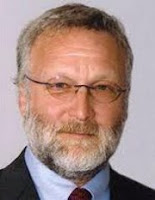Pain helps us avoid potentially harmful situations and is necessary for survival. While most of us only experience acute pain while the painful stimulus is present, some people unfortunately suffer from constant pain that persists long after the stimulus is removed. Our guest this week, Allan Basbaum, a professor and chair of the Department of Anatomy at UCSF, is interested in chronic pain and its cause.
During our interview, Dr. Basbaum explains how pain is in the brain; the pain that one person feels can be more (or less) intense than another person’s perception even if the stimulus is identical. His lab investigates how chronic pain can occur by changes in the nervous system and the role of epigenetics (the interactions between your DNA and all other non-DNA elements). They are also interested in transplanting inhibitory precursor cells (cells that develop and eventually inhibit the activity of surrounding neurons) to help the spinal cord suppress pain signals. His findings could eventually lead to effective therapies to treat this debilitating disease.
More on the Basbaum Lab's research
Hosted by Osama Ahmed
June 30, 2011
June 01, 2011
Makings of a memory: Loren Frank
The brain’s capacity to remember experiences to guide future decisions is an essential and fascinating ability. Our guest this month Loren Frank, an associate professor in the Keck Center for Integrative Neuroscience at UCSF, is working to understand this process.
Dr. Frank studies how the hippocampus, a brain structure required for the formation of memories, mediates spatial learning in rats. Within the hippocampus exist place cells: neurons that are activated whenever an animal is in a specific location in its environment. His lab records the neuronal activity of place cells during formation and “replay” of memories while rats explore their environment. Disrupting the “replay” prevents the long term formation of memory. Later in our interview, Dr. Frank discusses his initial interest in astrophysics and how he became interested in a career in neuroscience.
More on the Frank Lab's research
Dr. Frank studies how the hippocampus, a brain structure required for the formation of memories, mediates spatial learning in rats. Within the hippocampus exist place cells: neurons that are activated whenever an animal is in a specific location in its environment. His lab records the neuronal activity of place cells during formation and “replay” of memories while rats explore their environment. Disrupting the “replay” prevents the long term formation of memory. Later in our interview, Dr. Frank discusses his initial interest in astrophysics and how he became interested in a career in neuroscience.
More on the Frank Lab's research
Subscribe to:
Posts (Atom)

